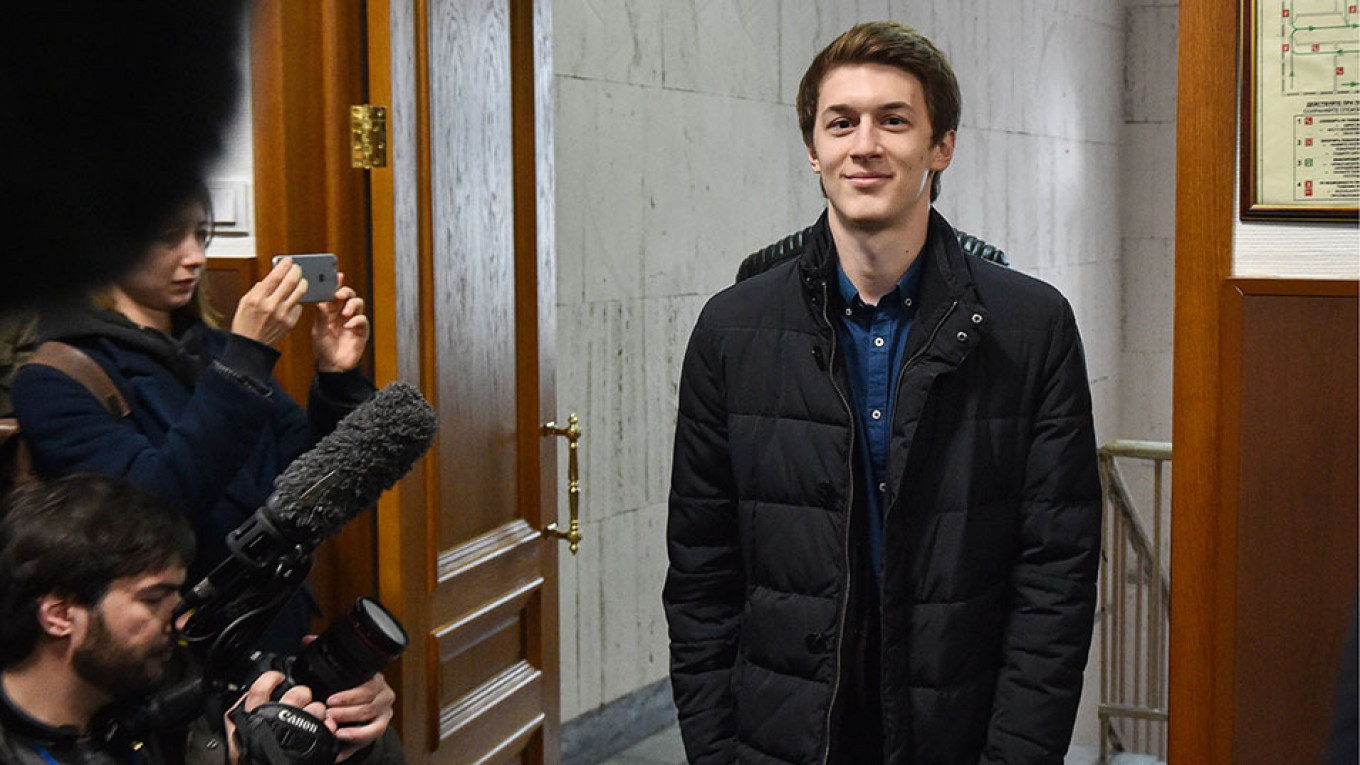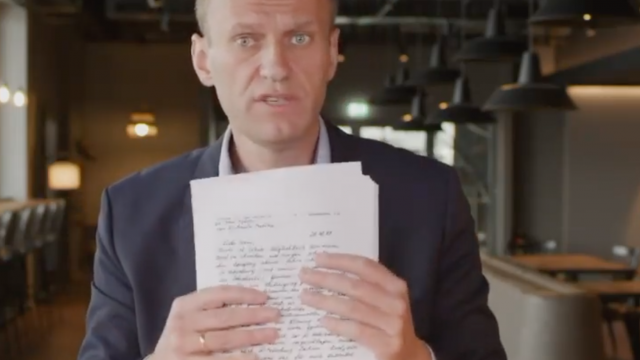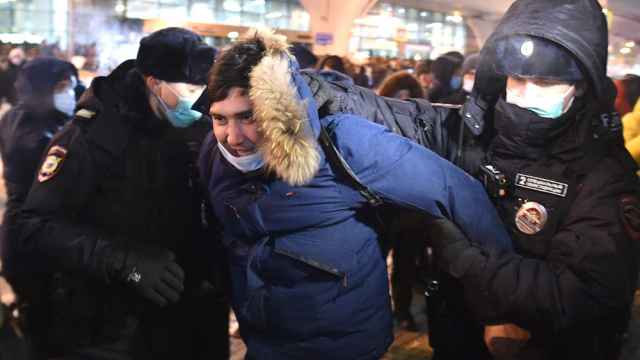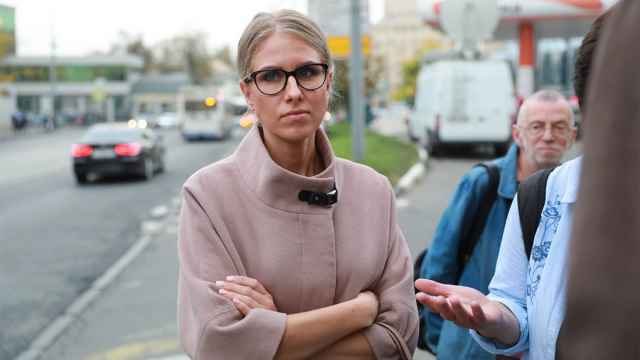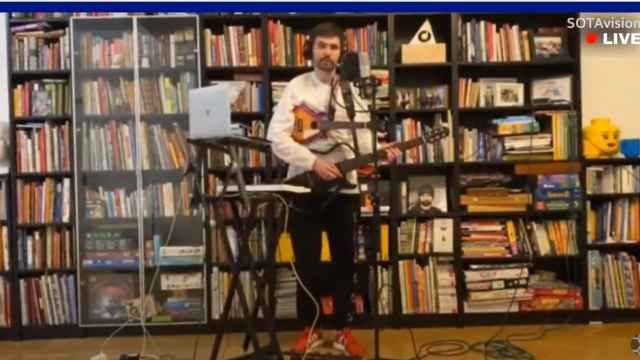Prominent student activist Yegor Zhukov, who became a figurehead of the summer 2019 protests in Moscow, was briefly hospitalized after unknown men assaulted him outside his home late Sunday, his supporters said.
Zhukov, 22, had said earlier in the day that Moscow’s prestigious Higher School of Economics (HSE) expelled him from a master’s degree program “on orders from above” less than two hours after accepting him.
“The university leadership was unpleasantly surprised to learn that I got accepted,” Zhukov said on his YouTube page, citing an unnamed high-level source at HSE.
HSE said on its website that it had closed down Zhukov’s program on the art of cinema because it had been unable to form a core team of instructors “for reasons beyond the university’s control.” Zhukov accused the HSE of following political orders.
“Either the presidential administration or the FSB [security service] ordered after I was convicted that I could never become a master’s student at HSE or there would be consequences,” Zhukov said, citing unnamed sources.
Zhukov became the face of Moscow’s protests last summer after authorities barred the opposition from fielding any candidates for city council and fellow students rallied in his support following his arrest. In December, Zhukov was sentenced to three years probation and banned from using the internet on charges of calling for extremism online.
Photographs on a Telegram channel run by Zhukov’s supporters showed him outside his home and at a police station with a swollen and bloodied face. He did not appear to have been incapacitated by the attack.
“Despite numerous injuries, Yegor remains calm and is even making jokes about the incident,” said a post on the Telegram channel.
It added that eyewitnesses saw two men attacking Zhukov and fleeing on scooters.
Moscow police said they have opened a criminal case investigating battery after Zhukov filed charges.
A Message from The Moscow Times:
Dear readers,
We are facing unprecedented challenges. Russia's Prosecutor General's Office has designated The Moscow Times as an "undesirable" organization, criminalizing our work and putting our staff at risk of prosecution. This follows our earlier unjust labeling as a "foreign agent."
These actions are direct attempts to silence independent journalism in Russia. The authorities claim our work "discredits the decisions of the Russian leadership." We see things differently: we strive to provide accurate, unbiased reporting on Russia.
We, the journalists of The Moscow Times, refuse to be silenced. But to continue our work, we need your help.
Your support, no matter how small, makes a world of difference. If you can, please support us monthly starting from just $2. It's quick to set up, and every contribution makes a significant impact.
By supporting The Moscow Times, you're defending open, independent journalism in the face of repression. Thank you for standing with us.
Remind me later.


